#rx350
Text


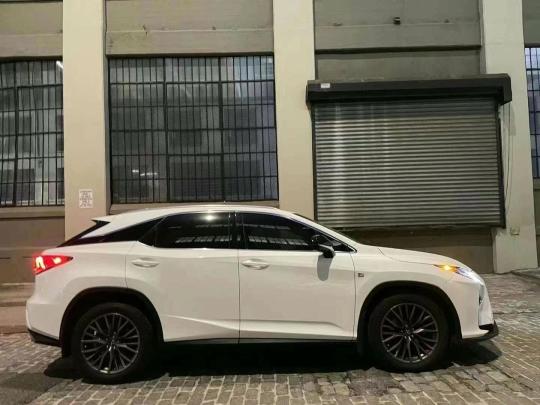

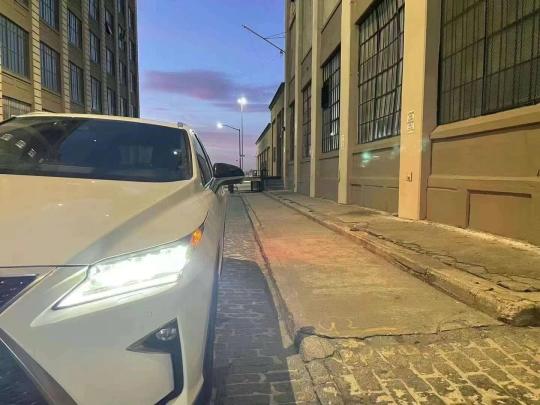

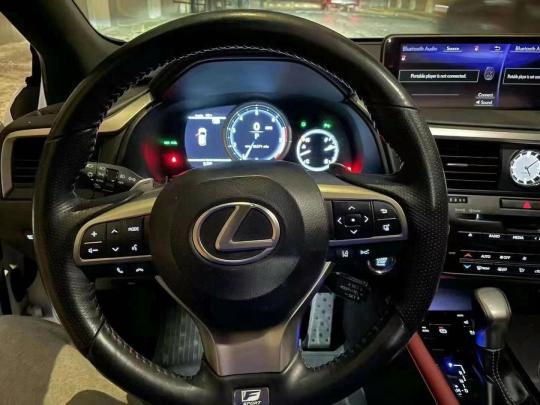


Elevate your driving experience to the next level with the 2019 LEXUS RX 350 F-sport. Combining luxury and performance, this mid-size SUV offers unparalleled power and precision handling, all while enveloping you in the utmost comfort and refinement. With cutting-edge features and a sleek design, the RX 350 F-sport is the ultimate choice for the modern driver who demands more from their vehicle. Experience the thrill of the open road in style and indulge in the ultimate luxury SUV - the 2019 LEXUS RX 350 F-sport.
#Lexus#RX350#FSport#LuxurySUV#Performance#PrecisionHandling#CuttingEdgeTechnology#Comfort#Refinement#DrivingExperience#ModernDesign#OpenRoad#Thrill#Indulgence#UltimateLuxurySUV
4 notes
·
View notes
Text
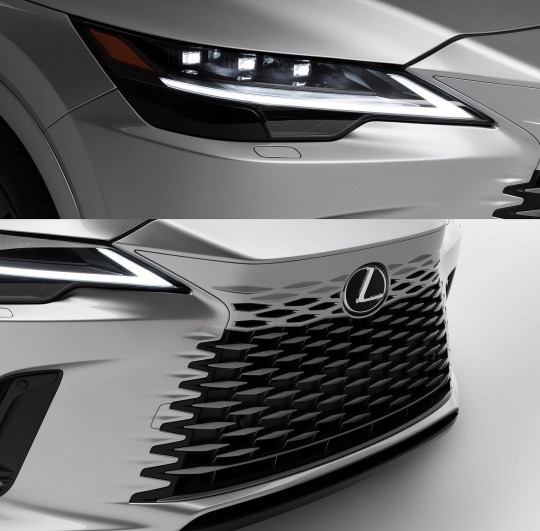








[ 2023 Lexus RX ]
18 notes
·
View notes
Text
PHILTOP Engine Air Filter, EAF007 (CA9360) Replacement for Camry, Sienna, Highlander, Solara, ES300, ES330, RX330, RX350 Air Filter, Improve Engine Performance
PHILTOP Engine Air Filter, EAF007 (CA9360) Replacement for Camry, Sienna, Highlander, Solara, ES300, ES330, RX330, RX350 Air Filter, Improve Engine Performance
Product Description & Features:
30% Longer Life: Thanks to the large-capacity filter technology, more dust and debris can be captured, which means that the PHILTOP air filter can last longer and avoid frequent replacement under normal…

View On WordPress
#Air#CA9360#Camry#EAF007#Engine#ES300#ES330#Filter#For#Front#Highlander#Improve#Performance#PHILTOP#Replacement#RX330#RX350#Sienna#Solara
0 notes
Photo

FOREIGN USED LEXUS RX350 2018 FOR SALE GOING FOR ☎️08122229131 or SEND US DM . . . . . . #rx350 #lexus #suvcar #carsales #carshopabuja #carporn #cars#modifiedcars #exoticcar https://www.instagram.com/p/CqVwRUQoE4U/?igshid=NGJjMDIxMWI=
0 notes
Photo

🇨🇦 Vancouver 🇨🇦 15 Years Official Warranty!!! Ceramic Coating 💎 🔥☔️ https://www.rdidetailing.ca/gtechniq Ultimate protection by RDI Detailing Call or Text to get a quote (778)899-14-54 @rdidetailing . . . #lexusrx350fsport #vancouverlexus #lexusnx #lexusnx300h #lexusis250 #lexusis250 #lexusnx350h #lexusgs300 #lexusrx350 #nx450h+ #vancouver #rdidetailing #lexusrx #lexusvancouver #openroadlexusrichmond #lexusrichmond #lexusofrichmond #lexusct200h #lexusnx #rx350 #nx450h #lexuslove #nx450hplus #lexusclub #westvancouver #vancouverbc #burnaby #richmond #surreybc #whiterock #nx350h #lexusworld #lexus450h (at RDI Detailing - Ceramic Coating Vancouver) https://www.instagram.com/p/CpijDzqMSwh/?igshid=NGJjMDIxMWI=
#lexusrx350fsport#vancouverlexus#lexusnx#lexusnx300h#lexusis250#lexusnx350h#lexusgs300#lexusrx350#nx450h#vancouver#rdidetailing#lexusrx#lexusvancouver#openroadlexusrichmond#lexusrichmond#lexusofrichmond#lexusct200h#rx350#lexuslove#nx450hplus#lexusclub#westvancouver#vancouverbc#burnaby#richmond#surreybc#whiterock#nx350h#lexusworld#lexus450h
0 notes
Photo
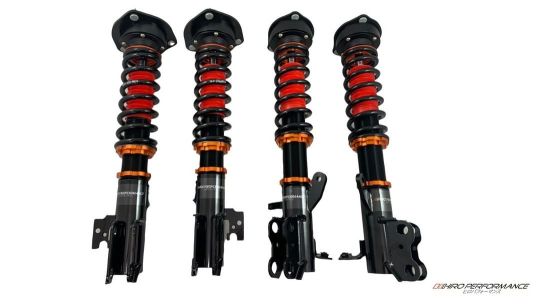
HIRO Performance Lowering Suspension Coilovers for 2003-2008 Lexus RX XU30 XU35 . . . HPLE08-02 . . . #hiroperformance #hiroperformancecoilovers #lexuscoilovers #lexusrxcoilovers #lexus #rx350 #lexusrx #XU30 #HIPEHPLE0802JP #slammed #coils #cambergang #suspension #aftermarket #performance #coilover #lowered #modified #tuned #stance #stanced #tuning #japaneseparts #camber #coilovers #japanese #stanceworks #stancenation #japan #static https://www.instagram.com/p/CofWto9p_17/?igshid=NGJjMDIxMWI=
#hiroperformance#hiroperformancecoilovers#lexuscoilovers#lexusrxcoilovers#lexus#rx350#lexusrx#xu30#hipehple0802jp#slammed#coils#cambergang#suspension#aftermarket#performance#coilover#lowered#modified#tuned#stance#stanced#tuning#japaneseparts#camber#coilovers#japanese#stanceworks#stancenation#japan#static
0 notes
Video
youtube
298,000 บาท 🔥 Lexus RX350 ปี2004 🔥 รถมือสองราคาถูก
0 notes
Photo

#HappyAnniversary to James and your 2014 #Lexus #RX350 from Darwin Roots at Landers McLarty Nissan!
0 notes
Text
On the Move: Exploring the Art of Efficient Transportation
Transportation is an integral part of our daily lives, seamlessly connecting people and goods across vast distances. From the rumbling trucks that traverse the highways, to the sleek automobiles that zip through city streets, the art of efficient transportation is a fascinating subject that impacts us all. In this article, we will delve into the various modes of transportation, exploring the intricacies of airplanes soaring through the skies, trains gliding along tracks, and the pivotal role they play in shaping our modern world. Join us on this journey as we unveil the power and possibilities of these remarkable means of conveyance.
Trucks: The Backbone of Efficient Goods Transportation
Trucks play a pivotal role in the efficient transportation of goods across various industries. These robust vehicles are the lifeline of supply chains, ensuring that products reach their destinations in a timely and reliable manner.
One of the key advantages of trucks is their versatility. They can navigate through different types of terrains, including urban areas, highways, and rural roads, effectively reaching even the most remote locations. With https://apnews.com/press-release/kisspr/raleigh-cars-7d9fc0165a18c128a428104cc6ffc449 to access diverse regions, trucks provide an extensive reach for transporting goods efficiently.
Moreover, trucks offer a flexible option for businesses. They are capable of transporting various types of goods, ranging from perishable items like food and medicine to oversized cargo like heavy machinery and construction materials. This adaptability makes trucks an ideal choice for manufacturers and distributors who need to transport diverse products to different destinations.
In addition to their versatility, trucks are known for their efficiency when it comes to transporting goods in a timely manner. With advances in technology, logistics companies can leverage real-time tracking systems and optimize routes to ensure the most efficient delivery schedules. This not only reduces transportation costs but also minimizes delays, thereby meeting the ever-increasing demands of businesses and consumers.
As we delve deeper into the art of efficient transportation, it is evident that trucks play a significant role as the backbone of goods delivery. Their versatility, adaptability, and efficiency make them an indispensable mode of transportation in today's fast-paced world. In the next sections, we will explore other key players in the transportation industry, including automobiles, airplanes, and trains, to gain a holistic understanding of the art of efficient transportation.
2. Airplanes: Revolutionizing Global Travel
Airplanes have played a pivotal role in revolutionizing global travel. These remarkable machines have reshaped the way we explore the world, allowing us to effortlessly soar through the sky and reach destinations that were once inaccessible. With their incredible speed and range, airplanes have become an indispensable mode of transportation for both passengers and cargo.
One of the most awe-inspiring aspects of airplanes is their ability to cover vast distances in remarkably short periods of time. Gone are the days when long and tedious journeys were the norm. Today, thanks to airplanes, we can traverse continents and oceans within a matter of hours. This has not only made international travel more accessible but has also connected people from different parts of the globe, fostering cultural exchange and understanding.
In addition to passenger travel, airplanes have revolutionized the transportation of goods and products across the world. Cargo planes have become the backbone of global trade, transporting vital resources, perishable goods, and even lifesaving medical supplies to remote corners of the planet. The speed and efficiency of air transportation have enabled us to create a truly interconnected global market, where goods can be delivered swiftly and reliably to meet the demands of consumers across borders.
Moreover, airplanes have played a crucial role in emergency situations and disaster relief efforts. They have the capability to reach areas affected by natural disasters, conflicts, or humanitarian crises quickly and efficiently. Whether it is delivering food and medical aid to remote regions or evacuating people in times of danger, airplanes have proven to be essential in saving lives and providing critical support during challenging times.
In conclusion, airplanes have transformed the way we travel and have become a symbol of our ability to conquer the skies. Their incredible speed, efficiency, and global reach have revolutionized not only passenger travel but also the transportation of goods and emergency aid. As we continue to advance in the field of aviation, airplanes will undoubtedly continue to play a vital role in shaping our world and connecting us in ways unimaginable before.
3. Trains: Reliability and Sustainability in Mass Transit
Trains play a vital role in modern transportation, offering a reliable and sustainable method of mass transit. With their efficient systems and impressive capacity, trains have become a popular choice for commuters and travelers alike.
One of the key advantages of trains is their reliability. Unlike other forms of transportation, trains operate on dedicated tracks, allowing for a smooth and uninterrupted journey. This separation from road traffic helps to minimize delays and congestion, ensuring that passengers can reach their destinations in a timely manner.
In addition to their reliability, trains also offer an environmentally friendly mode of transportation. Using electricity as their power source, trains produce significantly lower emissions compared to automobiles and airplanes. This makes trains a sustainable choice for reducing carbon footprint and improving air quality.
Moreover, trains have the advantage of being able to transport a large number of passengers at once. With their spacious interiors and multiple compartments, trains have the capacity to accommodate hundreds of people in a single trip. This efficient use of space makes trains an ideal choice for cities and regions with high population densities.
In conclusion, trains provide a reliable and sustainable solution for mass transit. Their dedicated tracks ensure reliable journey times, while their eco-friendly nature reduces emissions and contributes to a greener future. With their impressive capacity to transport large numbers of passengers, trains continue to be an integral part of efficient transportation systems worldwide.
1 note
·
View note
Text
Revolutionizing Transportation: Breaking Barriers and Exceeding Expectations
In today's fast-paced and interconnected world, transportation plays a pivotal role in shaping our lives. From trucks traversing the vast highways, to automobiles navigating bustling city streets, and airplanes soaring high above the clouds, transportation has become an essential part of our daily routines. Not to forget the ever-reliable trains that chug along, seamlessly connecting distant destinations. With each passing day, the world of transportation is breaking barriers and exceeding expectations, revolutionizing the way we move and explore. Let us delve into the transformative journey of these modes of transportation and witness the incredible advancements that have made our lives more convenient and accessible than ever before.
Trucks: Reinventing the Road
The modern world is constantly on the move, and at the heart of this movement are trucks. These powerful vehicles, packed with efficiency and reliability, are revolutionizing the transportation industry in ways we never thought possible.
Trucks have come a long way from their humble beginnings as basic cargo carriers. With advancements in technology and engineering, they have become the driving force behind the transportation of goods across vast distances. Their powerful engines and sturdy frames enable them to navigate challenging terrains, ensuring that products reach their destination safely and on time.
Not only are trucks highly adaptable, but they are also more fuel-efficient than ever before. Through innovative measures such as aerodynamic designs and engine advancements, trucks are breaking barriers and exceeding expectations when it comes to fuel consumption. This not only benefits the environment but also reduces operating costs for businesses, making them an economically sound choice.
The versatility of trucks cannot be overstated. They handle a wide range of cargo, from perishable goods to heavy machinery, making them an essential part of industries such as logistics, construction, and agriculture. With their ability to carry large loads, trucks are the backbone of the global supply chain, ensuring that goods are delivered promptly and efficiently.
In conclusion, trucks have redefined the concept of transport on the road, embracing technological advancements to deliver goods across long distances efficiently. By continuously breaking barriers and exceeding expectations, these vehicles reinforce their position as indispensable assets in the world of transportation.
Automobiles: Pioneering Personal Mobility
Automobiles have played a pivotal role in revolutionizing transportation, providing individuals with unparalleled personal mobility. With their ability to traverse almost any terrain, these four-wheeled vehicles have become an essential mode of transportation for billions around the world.
The invention of automobiles marked a turning point in history, forever altering the way people travel. Before their widespread adoption, individuals relied on traditional means of transportation, such as horses and carriages, which were laborious and time-consuming. However, with the introduction of automobiles, people were suddenly able to travel farther and faster, pushing the boundaries of personal mobility.
Not only did automobiles break barriers in terms of distance, but they also brought unprecedented convenience to everyday life. The ability to commute effortlessly between destinations revolutionized daily routines, allowing individuals to save precious time and energy. In turn, this led to increased productivity, as people could now dedicate more time to work, leisure, or spending time with loved ones. The impact of automobiles on personal mobility cannot be understated, as they have become an emblem of freedom and independence for countless individuals worldwide.
In conclusion, automobiles have played a crucial role in revolutionizing transportation, breaking barriers, and exceeding expectations. With their ability to provide personal mobility like no other form of transportation, they have become an integral part of modern society. As we look to the future, it is evident that automobiles will continue to evolve and shape the way we move, enabling us to explore new horizons with ease and convenience.
Airplanes: Redefining Air Travel
The invention of airplanes has greatly revolutionized transportation by redefining air travel. With their incredible speed and ability to cover vast distances, airplanes have become an essential mode of transportation in today's world.
One of the main advantages of airplanes is their speed. Unlike other forms of transportation, airplanes can travel at incredible velocities, allowing people to reach their destinations in a fraction of the time. This has opened up new possibilities for businesses, enabling them to connect with partners and clients around the globe within hours, rather than days or weeks.
Moreover, airplanes have also transformed the concept of international travel. In the past, exploring other countries and experiencing different cultures was a time-consuming and arduous endeavor. However, with the advent of airplanes, people can now easily hop on a flight and find themselves in a completely different part of the world within a few hours. This convenience and accessibility have led to a significant growth in the tourism industry, as more and more people are now able to embark on exciting adventures abroad.
Additionally, the transportation of goods has also been revolutionized by airplanes. Freight transport by air has become an essential part of the global supply chain, allowing businesses to rapidly transport goods across long distances. Whether it's perishable items that need to be delivered quickly or high-value products that require secure transportation, airplanes have provided a reliable solution for businesses to meet their logistical needs.
In conclusion, airplanes have truly redefined air travel, breaking barriers and exceeding expectations. With best years for Lexus RX350 , convenience, and the ability to transport both people and goods, airplanes have become an indispensable mode of transportation in our interconnected world.
1 note
·
View note
Text
On the Move: Exploring the Art of Efficient Transportation
Transportation is an integral part of our daily lives, seamlessly connecting people and goods across vast distances. From the rumbling trucks that traverse the highways, to the sleek automobiles that zip through city streets, the art of efficient transportation is a fascinating subject that impacts us all. In this article, we will delve into the various modes of transportation, exploring the intricacies of airplanes soaring through the skies, trains gliding along tracks, and the pivotal role they play in shaping our modern world. Join us on this journey as we unveil the power and possibilities of these remarkable means of conveyance.
Trucks: The Backbone of Efficient Goods Transportation
Trucks play a pivotal role in the efficient transportation of goods across various industries. These robust vehicles are the lifeline of supply chains, ensuring that products reach their destinations in a timely and reliable manner.
One of the key advantages of trucks is their versatility. They can navigate through different types of terrains, including urban areas, highways, and rural roads, effectively reaching even the most remote locations. With their ability to access diverse regions, trucks provide an extensive reach for transporting goods efficiently.
Moreover, trucks offer a flexible option for businesses. They are capable of transporting various types of goods, ranging from perishable items like food and medicine to oversized cargo like heavy machinery and construction materials. This adaptability makes trucks an ideal choice for manufacturers and distributors who need to transport diverse products to different destinations.
In addition to their versatility, trucks are known for their efficiency when it comes to transporting goods in a timely manner. With advances in technology, logistics companies can leverage real-time tracking systems and optimize routes to ensure the most efficient delivery schedules. This not only reduces transportation costs but also minimizes delays, thereby meeting the ever-increasing demands of businesses and consumers.
As we delve deeper into the art of efficient transportation, it is evident that trucks play a significant role as the backbone of goods delivery. Their versatility, adaptability, and efficiency make them an indispensable mode of transportation in today's fast-paced world. In the next sections, we will explore other key players in the transportation industry, including automobiles, airplanes, and trains, to gain a holistic understanding of the art of efficient transportation.
2. Airplanes: Revolutionizing Global Travel
Airplanes have played a pivotal role in revolutionizing global travel. These remarkable machines have reshaped the way we explore the world, allowing us to effortlessly soar through the sky and reach destinations that were once inaccessible. With their incredible speed and range, airplanes have become an indispensable mode of transportation for both passengers and cargo.
One of the most awe-inspiring aspects of airplanes is their ability to cover vast distances in remarkably short periods of time. Gone are the days when long and tedious journeys were the norm. Today, thanks to airplanes, we can traverse continents and oceans within a matter of hours. best year for Lexus RX 350 has not only made international travel more accessible but has also connected people from different parts of the globe, fostering cultural exchange and understanding.
In addition to passenger travel, airplanes have revolutionized the transportation of goods and products across the world. Cargo planes have become the backbone of global trade, transporting vital resources, perishable goods, and even lifesaving medical supplies to remote corners of the planet. The speed and efficiency of air transportation have enabled us to create a truly interconnected global market, where goods can be delivered swiftly and reliably to meet the demands of consumers across borders.
Moreover, airplanes have played a crucial role in emergency situations and disaster relief efforts. They have the capability to reach areas affected by natural disasters, conflicts, or humanitarian crises quickly and efficiently. Whether it is delivering food and medical aid to remote regions or evacuating people in times of danger, airplanes have proven to be essential in saving lives and providing critical support during challenging times.
In conclusion, airplanes have transformed the way we travel and have become a symbol of our ability to conquer the skies. Their incredible speed, efficiency, and global reach have revolutionized not only passenger travel but also the transportation of goods and emergency aid. As we continue to advance in the field of aviation, airplanes will undoubtedly continue to play a vital role in shaping our world and connecting us in ways unimaginable before.
3. Trains: Reliability and Sustainability in Mass Transit
Trains play a vital role in modern transportation, offering a reliable and sustainable method of mass transit. With their efficient systems and impressive capacity, trains have become a popular choice for commuters and travelers alike.
One of the key advantages of trains is their reliability. Unlike other forms of transportation, trains operate on dedicated tracks, allowing for a smooth and uninterrupted journey. This separation from road traffic helps to minimize delays and congestion, ensuring that passengers can reach their destinations in a timely manner.
In addition to their reliability, trains also offer an environmentally friendly mode of transportation. Using electricity as their power source, trains produce significantly lower emissions compared to automobiles and airplanes. This makes trains a sustainable choice for reducing carbon footprint and improving air quality.
Moreover, trains have the advantage of being able to transport a large number of passengers at once. With their spacious interiors and multiple compartments, trains have the capacity to accommodate hundreds of people in a single trip. This efficient use of space makes trains an ideal choice for cities and regions with high population densities.
In conclusion, trains provide a reliable and sustainable solution for mass transit. Their dedicated tracks ensure reliable journey times, while their eco-friendly nature reduces emissions and contributes to a greener future. With their impressive capacity to transport large numbers of passengers, trains continue to be an integral part of efficient transportation systems worldwide.
1 note
·
View note
Text
Revolutionizing Transportation: Breaking Barriers and Exceeding Expectations
In today's fast-paced and interconnected world, transportation plays a pivotal role in shaping our lives. From trucks traversing the vast highways, to automobiles navigating bustling city streets, and airplanes soaring high above the clouds, transportation has become an essential part of our daily routines. Not to forget the ever-reliable trains that chug along, seamlessly connecting distant destinations. With each passing day, the world of transportation is breaking barriers and exceeding expectations, revolutionizing the way we move and explore. Let us delve into the transformative journey of these modes of transportation and witness the incredible advancements that have made our lives more convenient and accessible than ever before.
Trucks: Reinventing the Road
The modern world is constantly on the move, and at the heart of this movement are trucks. These powerful vehicles, packed with efficiency and reliability, are revolutionizing the transportation industry in ways we never thought possible.
Trucks have come a long way from their humble beginnings as basic cargo carriers. With advancements in technology and engineering, they have become the driving force behind the transportation of goods across vast distances. Their powerful engines and sturdy frames enable them to navigate challenging terrains, ensuring that products reach their destination safely and on time.
Not only are trucks highly adaptable, but they are also more fuel-efficient than ever before. Through innovative measures such as aerodynamic designs and engine advancements, trucks are breaking barriers and exceeding expectations when it comes to fuel consumption. This not only benefits the environment but also reduces operating costs for businesses, making them an economically sound choice.
The versatility of trucks cannot be overstated. They handle a wide range of cargo, from perishable goods to heavy machinery, making them an essential part of industries such as logistics, construction, and agriculture. With their ability to carry large loads, trucks are the backbone of the global supply chain, ensuring that goods are delivered promptly and efficiently.
In conclusion, trucks have redefined the concept of transport on the road, embracing technological advancements to deliver goods across long distances efficiently. By continuously breaking barriers and exceeding expectations, these vehicles reinforce their position as indispensable assets in the world of transportation.
Automobiles: Pioneering Personal Mobility
Automobiles have played a pivotal role in revolutionizing transportation, providing individuals with unparalleled personal mobility. With their ability to traverse almost any terrain, these four-wheeled vehicles have become an essential mode of transportation for billions around the world.
The invention of automobiles marked a turning point in history, forever altering the way people travel. Before their widespread adoption, individuals relied on traditional means of transportation, such as horses and carriages, which were laborious and time-consuming. However, with the introduction of automobiles, people were suddenly able to travel farther and faster, pushing the boundaries of personal mobility.
Not only did automobiles break barriers in terms of distance, but they also brought unprecedented convenience to everyday life. https://www.benzinga.com/pressreleases/23/12/g36189166/four-wheel-trends-provides-insights-on-best-years-for-lexus-rx350 to commute effortlessly between destinations revolutionized daily routines, allowing individuals to save precious time and energy. In turn, this led to increased productivity, as people could now dedicate more time to work, leisure, or spending time with loved ones. The impact of automobiles on personal mobility cannot be understated, as they have become an emblem of freedom and independence for countless individuals worldwide.
In conclusion, automobiles have played a crucial role in revolutionizing transportation, breaking barriers, and exceeding expectations. With their ability to provide personal mobility like no other form of transportation, they have become an integral part of modern society. As we look to the future, it is evident that automobiles will continue to evolve and shape the way we move, enabling us to explore new horizons with ease and convenience.
Airplanes: Redefining Air Travel
The invention of airplanes has greatly revolutionized transportation by redefining air travel. With their incredible speed and ability to cover vast distances, airplanes have become an essential mode of transportation in today's world.
One of the main advantages of airplanes is their speed. Unlike other forms of transportation, airplanes can travel at incredible velocities, allowing people to reach their destinations in a fraction of the time. This has opened up new possibilities for businesses, enabling them to connect with partners and clients around the globe within hours, rather than days or weeks.
Moreover, airplanes have also transformed the concept of international travel. In the past, exploring other countries and experiencing different cultures was a time-consuming and arduous endeavor. However, with the advent of airplanes, people can now easily hop on a flight and find themselves in a completely different part of the world within a few hours. This convenience and accessibility have led to a significant growth in the tourism industry, as more and more people are now able to embark on exciting adventures abroad.
Additionally, the transportation of goods has also been revolutionized by airplanes. Freight transport by air has become an essential part of the global supply chain, allowing businesses to rapidly transport goods across long distances. Whether it's perishable items that need to be delivered quickly or high-value products that require secure transportation, airplanes have provided a reliable solution for businesses to meet their logistical needs.
In conclusion, airplanes have truly redefined air travel, breaking barriers and exceeding expectations. With their remarkable speed, convenience, and the ability to transport both people and goods, airplanes have become an indispensable mode of transportation in our interconnected world.
1 note
·
View note
Text
Revolutionizing Transportation: The Future in Motion
Transportation is an integral part of our daily lives, allowing people and goods to move across short distances to far-flung destinations. From the advent of the wheel to the introduction of steam engines, we have come a long way in revolutionizing transportation. Today, we find ourselves in the midst of another transportation revolution, driven by technological advancements and a global need for faster, more efficient modes of travel.
Trucks, automobiles, airplanes, and trains are at the forefront of this transformative era. These vehicles not only connect people and places but also serve as a symbol of progress and innovation. Each mode of transportation brings its own unique set of benefits and challenges, catering to diverse needs and creating a web of interconnected infrastructure that spans the globe.
Trucks, often considered the backbone of transportation, cater to the crucial task of moving goods across vast distances. With https://www.globenewswire.com/news-release/2023/12/12/2794348/0/en/Four-Wheel-Trends-Provides-Insights-on-Best-Years-for-Lexus-RX350.html in technology, these mighty vehicles have become smarter, more fuel-efficient, and environmentally friendly, contributing towards a greener future. From self-driving trucks to electric-powered ones, the industry is constantly evolving, ensuring a fast and reliable supply chain that drives economies forward.
Automobiles, on the other hand, have become synonymous with personal transportation. With each passing year, we witness the rise of electric and hybrid vehicles, paving the way for a future free from fossil fuel dependency. Alongside such ecological considerations, technologically advanced safety features such as autonomous driving capabilities and interconnected systems are transforming the way we perceive automobiles, making travel not only efficient but also safer than ever before.
Airplanes have long been hailed as the pioneers of long-distance travel. They connect continents and cultures, shrinking the world into a global village. In recent years, the focus on fuel efficiency and reducing emissions has led to the development of greener aircraft, ensuring an environmentally conscious future for air travel. Additionally, breakthroughs in materials and aerodynamics push the limits of speed and comfort, promising shorter travel times and enhanced experiences for passengers.
Lastly, trains have played a significant role in transportation history, and they continue to shape the future. From speedy intercity networks to luxurious cross-continental journeys, trains offer a unique blend of convenience, comfort, and sustainability. Advances in magnetic levitation technology, for example, have given rise to high-speed trains that glide over tracks, revolutionizing the way we traverse space and time.
As we delve further into the article, we will explore these modes of transportation and delve into the transformative technologies and ideas that are revolutionizing the way we move. From autonomous vehicles to hyperloop concepts, the future of transportation holds immense potential to reshape the world we live in, making it faster, safer, and more interconnected than ever before.
The Rise of Electric Vehicles
Electric vehicles (EVs) have become an integral part of the transportation industry, making significant strides in recent years. With the world's increasing focus on sustainability and reducing carbon emissions, EVs offer a promising solution for a greener future.
The adoption of electric trucks is gaining momentum, revolutionizing the transportation of goods. Companies are recognizing the benefits of EVs, such as fewer greenhouse gas emissions and lower operating costs. As more and more businesses switch to electric trucks, we are witnessing a transformative shift in the industry.
In addition to trucks, the rise of electric automobiles cannot be ignored. With advancements in battery technology, EVs now offer longer driving ranges and faster charging times, addressing some of the initial concerns people had about this technology. As a result, consumer interest in electric cars has skyrocketed, paving the way for a future where traditional gasoline-powered vehicles are replaced by their electric counterparts.
Electric airplanes are also on the horizon, aiming to revolutionize air travel. Although still in the early stages of development, electric aircraft have the potential to greatly reduce emissions, noise pollution, and fuel costs. This advancement could transform the aviation industry, paving the way for a more sustainable and efficient mode of air transportation.
While electric trains have been in operation for some time, there is a renewed push to electrify existing train networks and expand electric rail infrastructure. Electric trains are known for their energy efficiency, faster acceleration, and reduced noise levels compared to diesel-powered trains. By embracing electric railroad technology, countries can significantly reduce their dependence on fossil fuels and contribute to a cleaner transportation sector.
As we witness the rise of electric vehicles across different modes of transportation, it is clear that they are poised to shape the future of mobility. The global shift towards sustainability and the urgent need to address climate change have accelerated the adoption of electric transportation. With ongoing advancements in technology and growing awareness of the environmental benefits, the transportation industry is on the brink of a revolution, propelling us towards a greener and more sustainable future.
The Advancements in Air Travel
Air travel has undergone significant advancements over the years, revolutionizing the way we move across long distances. From humble beginnings, airplanes have evolved into sophisticated machines, making travel more accessible, efficient, and comfortable.
In recent years, technological innovations have propelled air travel to new heights. The development of more efficient engines and lightweight materials has resulted in fuel savings and reduced carbon emissions. These advancements not only contribute to a greener environment but also make air travel more sustainable for the future.
Moreover, the introduction of state-of-the-art aircraft has revolutionized the passenger experience. Modern airplanes are equipped with advanced entertainment systems, comfortable seating arrangements, and improved air quality. Passengers can now enjoy a wide range of in-flight entertainment options, stay connected through onboard Wi-Fi, and experience a more pleasant journey overall.
Furthermore, the advancements in air travel extend beyond passenger experience. Cargo transportation has also benefited from these developments. The increased cargo capacity of airplanes, along with improved tracking and logistics systems, has greatly enhanced the efficiency of transporting goods across the globe. This has facilitated faster delivery times and opened up new opportunities for international trade.
In conclusion, the advancements in air travel have transformed the way we approach transportation. From reducing our carbon footprint to providing enhanced passenger experiences and efficient cargo transportation, these innovations have made air travel an integral part of our modern world. With ongoing research and development, we can expect even more exciting advancements in the future, promising a truly revolutionary transportation experience.
The Role of Automation in Transportation
Automation is revolutionizing the transportation industry, bringing forth exciting advancements in trucks, automobiles, airplanes, and trains. With the rapid pace of technological innovation, these modes of transportation are undergoing significant transformations that are poised to shape the future of how we move.
In the world of trucks, automation is enhancing efficiency and safety. Automated systems enable trucks to navigate highways autonomously, reducing the risk of human error and ensuring a smoother flow of goods. By incorporating advanced sensors and artificial intelligence, these trucks are capable of adapting to changing road conditions, optimizing fuel usage, and minimizing traffic congestion.
Similarly, the automobile industry is being reshaped through automation. Self-driving cars are no longer a mere concept but are gradually becoming a reality. These vehicles use a combination of sensors, cameras, and machine learning algorithms to perceive their surroundings and make informed decisions while on the road. This development has the potential to revolutionize personal transportation, making it safer, more accessible, and environmentally friendly.
The impact of automation is not limited to land vehicles. In the realm of aviation, airplanes are becoming increasingly automated, with advanced autopilots and flight management systems taking charge of various aspects of the flight. These systems not only enhance safety but also contribute to fuel efficiency by optimizing routes and reducing human error. While pilots still play a critical role in decision-making and handling emergencies, automation is transforming the way we fly.
Furthermore, trains are also benefitting from automation. Highly sophisticated train control systems and advanced signaling technologies ensure more precise control and coordination, resulting in improved efficiency and safety. Automation enables trains to operate with higher frequency, reduced reaction times, and enhanced capacity, thus transforming the way we commute over long distances.
Automation in transportation holds great promise for streamlining operations, improving safety, and reducing environmental impact. As technology continues to evolve, we can anticipate a future where transportation becomes not only more efficient but also increasingly interconnected, transforming the way we move and creating a truly dynamic world in motion.
1 note
·
View note
Photo
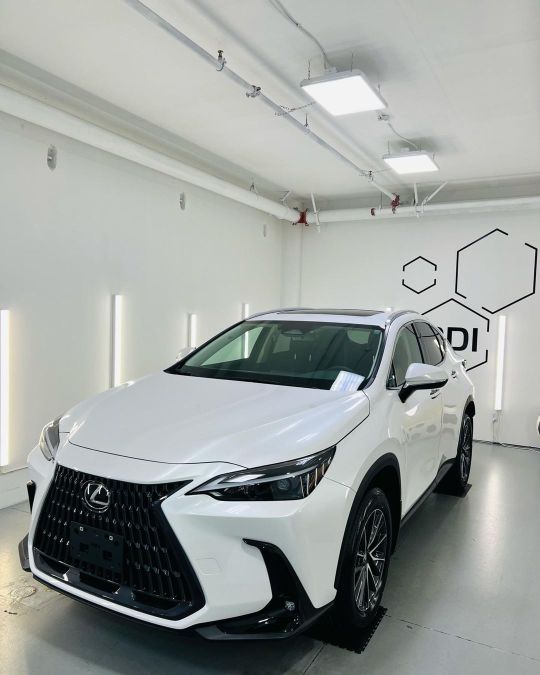
🇨🇦 Vancouver 🇨🇦 15 Years Official Warranty!!! Ceramic Coating 💎 🔥☔️ https://www.rdidetailing.ca/gtechniq Ultimate protection by RDI Detailing Call or Text to get a quote (778)899-14-54 @rdidetailing . . . #lexusrx350fsport #vancouverlexus #lexusnx #lexusnx300h #lexusis250 #lexusis250 #lexusnx350h #lexusgs300 #lexusrx350 #nx450h+ #vancouver #rdidetailing #lexusrx #lexusvancouver #openroadlexusrichmond #lexusrichmond #lexusofrichmond #lexusct200h #lexusnx #rx350 #nx450h #lexuslove #nx450hplus #lexusclub #westvancouver #vancouverbc #burnaby #richmond #surreybc #whiterock #nx350h #lexusworld #lexus450h (at RDI Detailing - Ceramic Coating Vancouver) https://www.instagram.com/p/CpIhzuDsraL/?igshid=NGJjMDIxMWI=
#lexusrx350fsport#vancouverlexus#lexusnx#lexusnx300h#lexusis250#lexusnx350h#lexusgs300#lexusrx350#nx450h#vancouver#rdidetailing#lexusrx#lexusvancouver#openroadlexusrichmond#lexusrichmond#lexusofrichmond#lexusct200h#rx350#lexuslove#nx450hplus#lexusclub#westvancouver#vancouverbc#burnaby#richmond#surreybc#whiterock#nx350h#lexusworld#lexus450h
0 notes
Text
The Future of Getting from A to B: Innovations in Transportation
Welcome to the future of transportation, where innovation is transforming the way we get from A to B. From the bustling highways filled with trucks and automobiles to the majestic skies traversed by airplanes, transportation plays a pivotal role in our daily lives. And with the ever-advancing technology, we find ourselves on the brink of a revolution, where the possibilities seem endless.
Trucks have long been the backbone of shipping and logistics, delivering goods across vast distances with efficiency. However, advancements in automation and electric vehicles promise to revolutionize the trucking industry. Imagine a future where self-driving trucks seamlessly navigate the roads, reducing accidents and improving fuel efficiency. Furthermore, the development of electric and hydrogen fuel-cell trucks holds the potential to significantly reduce carbon emissions, making transportation more sustainable than ever.
Automobiles, a symbol of freedom and mobility, are also undergoing a transformation. Electric vehicles have surged in popularity, offering environmentally-friendly alternatives to traditional combustion engines. As charging infrastructure expands and battery technology improves, we can expect to see a significant increase in the adoption of electric cars. Additionally, the rise of ridesharing and car-sharing services is revolutionizing the way we think about car ownership, allowing for more efficient utilization of vehicles and reducing congestion on the roads.
Air travel, with its ability to bridge vast distances in a matter of hours, has become an integral part of our interconnected world. Advancements in aircraft technology, such as the use of lightweight materials and more efficient engines, are making air travel more fuel-efficient and environmentally friendly. Additionally, the development of supersonic and hypersonic aircraft could revolutionize long-haul travel, reducing journey times and opening up new possibilities for exploration and trade.
Meanwhile, trains continue to be a reliable and efficient mode of transportation, particularly for long distances and heavy cargo. High-speed rail systems, like the iconic bullet trains in Japan, are becoming increasingly prevalent, offering a greener alternative to short-haul flights. Moreover, the integration of technology, such as autonomous trains and smart infrastructure, promises to enhance safety and efficiency, ensuring a smooth and comfortable journey for passengers.
As we embark on this journey into the future of transportation, one thing is certain: innovation will shape the way we move. From trucks to automobiles, airplanes to trains, the advancements in technology are bound to revolutionize the way we get from one place to another. So fasten your seatbelts, hold on, and get ready for an exciting ride into the future of transportation.
The Rise of Electric Vehicles
In recent years, the transportation industry has witnessed a significant shift towards electric vehicles (EVs). Electric cars, trucks, and even buses are becoming increasingly common on our roads, marking a new era in sustainable transportation.
One of the main advantages of electric vehicles is their positive impact on the environment. Unlike traditional gasoline-powered vehicles, EVs produce zero tailpipe emissions. By eliminating harmful pollutants, such as carbon dioxide and nitrogen oxides, these vehicles contribute to cleaner air and help combat climate change.
In addition to their environmental benefits, electric vehicles offer significant cost savings. With lower maintenance requirements and no need for gasoline, EV owners can save on fuel and regular servicing expenses. Moreover, as technology continues to advance, the cost of electric vehicles is gradually decreasing, making them more accessible to a wider range of consumers.
Another driving force behind the rise of electric vehicles is the progress in charging infrastructure. The establishment of charging stations in various locations, such as parking lots, shopping centers, and even along highways, has alleviated concerns about range anxiety. As the charging network continues to expand, the convenience of owning an electric vehicle will only improve, further motivating consumers to make the switch.
With governments worldwide implementing initiatives to promote the adoption of electric vehicles, it is clear that they are here to stay. From tax incentives and subsidies to policies encouraging the installation of charging infrastructure, these measures aim to accelerate the transition towards greener transportation options.
As we embark on this new era of mobility, it is expected that electric vehicles will revolutionize the way we travel. With advancements in battery technology, increased range, and enhanced charging infrastructure, the future of transportation is undeniably electric. The transportation sector will continue to evolve, with electric trucks, airplanes, and trains becoming commonplace, offering greater efficiency, sustainability, and a cleaner future for generations to come.
Hyperloop: Revolutionizing Train Travel
The transportation industry is constantly evolving, and one innovation that has been generating a lot of buzz is the Hyperloop. This groundbreaking concept aims to revolutionize train travel by combining the speed of an airplane with the efficiency of a train.
Imagine being able to commute from one city to another in a matter of minutes, all while enjoying a smooth and comfortable ride. That’s precisely what the Hyperloop promises to deliver. By utilizing a low-pressure tube and magnetic levitation technology, this futuristic transportation system has the potential to reach speeds of up to 700 miles per hour.
Not only would the Hyperloop drastically reduce travel times, but it could also have a significant impact on the transportation of goods. Currently, trucks are the primary mode of long-distance freight transportation, but the Hyperloop could offer a faster and more sustainable alternative. Goods could be transported at high speeds, reducing delivery times and relieving some of the strain on our road networks.
In conclusion, the Hyperloop represents a transformative innovation in the realm of transportation. By providing unprecedented speed and efficiency, it has the potential to revolutionize not only the way we travel but also the transportation of goods. As this technology continues to develop, we can look forward to a future where getting from A to B is faster, safer, and more sustainable than ever before.
3. Future of Flying: Advances in Airplane Technology
Airplane technology has been rapidly evolving, opening up exciting possibilities for the future of flying. Innovations in this field are aimed at enhancing efficiency, safety, and sustainability. With https://www.globenewswire.com/news-release/2023/12/12/2794348/0/en/Four-Wheel-Trends-Provides-Insights-on-Best-Years-for-Lexus-RX350.html , we can anticipate remarkable changes in how we travel through the skies.
Firstly, one area of focus is the development of more eco-friendly aircraft. Manufacturers are investing in research and design to reduce carbon emissions and minimize the environmental impact of air travel. This includes exploring alternative fuel sources such as biofuels and electric propulsion systems. These innovations aim to make air travel more sustainable without compromising on performance or passenger experience.
Secondly, there is an increasing emphasis on enhancing safety features in airplanes. Technology advancement allows for improved navigation systems, better weather monitoring, and advanced collision avoidance systems. Automated systems are being developed to assist pilots in critical decision-making processes and provide real-time data for efficient flight management. These advancements will contribute to making air travel even safer in the future.
Lastly, the future of flying involves the integration of autonomous and electric aircraft. With rapid progress in autonomous vehicle technology, the idea of autonomous airplanes is gaining momentum. The potential benefits include improved flight precision, reduced human error, and increased operational efficiency. Additionally, electric aircraft are being explored as alternatives to traditional fuel-powered planes, as they offer the potential for reduced emissions and noise pollution.
As we look ahead, it is clear that the future of flying holds great promise. Through advancements in airplane technology, we can expect greater sustainability, heightened safety measures, and the emergence of autonomous and electric aircraft. These innovations will shape the way we travel and revolutionize the transportation landscape.
1 note
·
View note
Text
Revolutionizing Transportation: Breaking Barriers and Exceeding Expectations
In today's fast-paced and interconnected world, transportation plays a pivotal role in shaping our lives. From trucks traversing the vast highways, to automobiles navigating bustling city streets, and airplanes soaring high above the clouds, transportation has become an essential part of our daily routines. Not to forget the ever-reliable trains that chug along, seamlessly connecting distant destinations. With each passing day, the world of transportation is breaking barriers and exceeding expectations, revolutionizing the way we move and explore. Let us delve into the transformative journey of these modes of transportation and witness the incredible advancements that have made our lives more convenient and accessible than ever before.
Trucks: Reinventing the Road
The modern world is constantly on the move, and at the heart of this movement are trucks. These powerful vehicles, packed with efficiency and reliability, are revolutionizing the transportation industry in ways we never thought possible.
Trucks have come a long way from their humble beginnings as basic cargo carriers. With https://www.newsfilecorp.com/release/190650 in technology and engineering, they have become the driving force behind the transportation of goods across vast distances. Their powerful engines and sturdy frames enable them to navigate challenging terrains, ensuring that products reach their destination safely and on time.
Not only are trucks highly adaptable, but they are also more fuel-efficient than ever before. Through innovative measures such as aerodynamic designs and engine advancements, trucks are breaking barriers and exceeding expectations when it comes to fuel consumption. This not only benefits the environment but also reduces operating costs for businesses, making them an economically sound choice.
The versatility of trucks cannot be overstated. They handle a wide range of cargo, from perishable goods to heavy machinery, making them an essential part of industries such as logistics, construction, and agriculture. With their ability to carry large loads, trucks are the backbone of the global supply chain, ensuring that goods are delivered promptly and efficiently.
In conclusion, trucks have redefined the concept of transport on the road, embracing technological advancements to deliver goods across long distances efficiently. By continuously breaking barriers and exceeding expectations, these vehicles reinforce their position as indispensable assets in the world of transportation.
Automobiles: Pioneering Personal Mobility
Automobiles have played a pivotal role in revolutionizing transportation, providing individuals with unparalleled personal mobility. With their ability to traverse almost any terrain, these four-wheeled vehicles have become an essential mode of transportation for billions around the world.
The invention of automobiles marked a turning point in history, forever altering the way people travel. Before their widespread adoption, individuals relied on traditional means of transportation, such as horses and carriages, which were laborious and time-consuming. However, with the introduction of automobiles, people were suddenly able to travel farther and faster, pushing the boundaries of personal mobility.
Not only did automobiles break barriers in terms of distance, but they also brought unprecedented convenience to everyday life. The ability to commute effortlessly between destinations revolutionized daily routines, allowing individuals to save precious time and energy. In turn, this led to increased productivity, as people could now dedicate more time to work, leisure, or spending time with loved ones. The impact of automobiles on personal mobility cannot be understated, as they have become an emblem of freedom and independence for countless individuals worldwide.
In conclusion, automobiles have played a crucial role in revolutionizing transportation, breaking barriers, and exceeding expectations. With their ability to provide personal mobility like no other form of transportation, they have become an integral part of modern society. As we look to the future, it is evident that automobiles will continue to evolve and shape the way we move, enabling us to explore new horizons with ease and convenience.
Airplanes: Redefining Air Travel
The invention of airplanes has greatly revolutionized transportation by redefining air travel. With their incredible speed and ability to cover vast distances, airplanes have become an essential mode of transportation in today's world.
One of the main advantages of airplanes is their speed. Unlike other forms of transportation, airplanes can travel at incredible velocities, allowing people to reach their destinations in a fraction of the time. This has opened up new possibilities for businesses, enabling them to connect with partners and clients around the globe within hours, rather than days or weeks.
Moreover, airplanes have also transformed the concept of international travel. In the past, exploring other countries and experiencing different cultures was a time-consuming and arduous endeavor. However, with the advent of airplanes, people can now easily hop on a flight and find themselves in a completely different part of the world within a few hours. This convenience and accessibility have led to a significant growth in the tourism industry, as more and more people are now able to embark on exciting adventures abroad.
Additionally, the transportation of goods has also been revolutionized by airplanes. Freight transport by air has become an essential part of the global supply chain, allowing businesses to rapidly transport goods across long distances. Whether it's perishable items that need to be delivered quickly or high-value products that require secure transportation, airplanes have provided a reliable solution for businesses to meet their logistical needs.
In conclusion, airplanes have truly redefined air travel, breaking barriers and exceeding expectations. With their remarkable speed, convenience, and the ability to transport both people and goods, airplanes have become an indispensable mode of transportation in our interconnected world.
1 note
·
View note